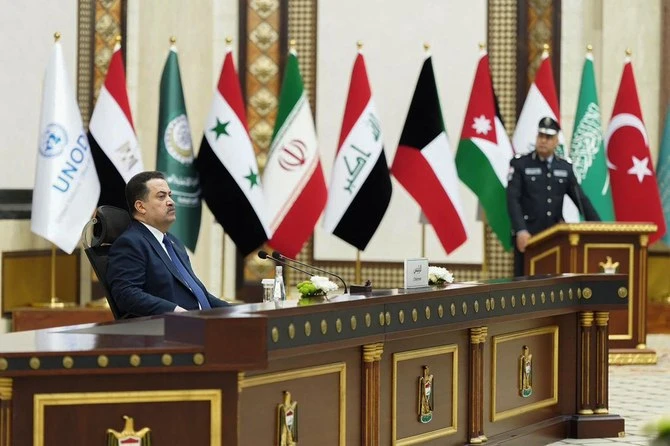UN cautions Iraq at risk of becoming key drug trafficking hub

Stay tuned with 24 News HD Android App

Iraqi authorities seized record quantities of the potent stimulant captagon last year, at an estimated value of up to $144 million, with the country increasingly a critical drug conduit, a UN report said Monday.
"Iraq has been experiencing a dramatic surge in drug trafficking and consumption for the past five years," according to a United Nations Office on Drugs and Crime (UNODC) report.
In 2023 alone, authorities "seized a record-high 24 million captagon tablets", the equivalent of over 4.1 tonnes, with an estimated "retail value" of between $84 million and $144 million, it said.
"Iraq appears to be at the nexus of regional trafficking routes for both methamphetamine and captagon", UNODC said, adding that it is "becoming a critical juncture in the complex trafficking dynamics observed in the Near and Middle East region."
Captagon seizures in Iraq "reportedly tripled between 2022 and 2023, and overall amounts seized in 2023 are 34 times higher than in 2019."
An amphetamine derived from a once-legal treatment for narcolepsy and attention disorder, captagon today is trafficked through several Middle Eastern countries, with Syria the main country of origin and Saudi Arabia by far the biggest market.
Authorities in conflict-scarred Iraq regularly announce large seizures of captagon, much of it moved across the porous 600-kilometre (370-mile) border with war-torn Syria.
According to UNODC, 82 percent of the captagon seized in the region between 2019 and 2023 originated in Syria, followed by neighbouring Lebanon, at 17 percent.
Iraq is also becoming a conduit for the flow of highly addictive methamphetamine stimulants produced mostly in Afghanistan and headed to the Gulf and Europe, with seizures in Iraq increasing almost sixfold in 2023 compared to 2019.
The country faces an explosion in domestic drug use, with the repeated crises that have gripped the conflict-ridden country of 43 million people driving up usage.
Governments in the region have recently stepped up their efforts to crack down on drug trafficking under pressure from the oil-rich Gulf states.
During an anti-drug conference attended by regional officials, Iraq's Prime Minister Mohamed Shia al-Sudani called for regional cooperation.
"Coordinating and cooperating to pursue and dismantle drug gangs will serve regional and international security," he said, adding that "Iraq is open to all cooperation" to fight "cross-border crime".
"We will support any effort aiming to eliminate drug hubs, manufacturing stations, and cutting off their supply chains."
